Lecturers Summer School 2017
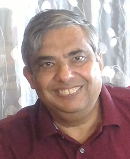
Rakesh Agrawal
Rakesh Agrawal is the President and Founder of the Data Insights Laboratories, San Jose, USA. He is also the Rukmini Visiting Chair Professor at the Indian Institute of Science, Bangalore, India and a Visiting Professor at EPFL, Lausanne, Switzerland. He is a member of the National Academy of Engineering, both USA and India, a Fellow of ACM, and a Fellow of IEEE. He has been both an IBM Fellow and a Microsoft Fellow. ACM SIGKDD awarded him its inaugural Innovations Award and ACM SIGMOD the Edgar F. Codd Award. He was named to the Scientific American’s First list of top 50 Scientists. Rakesh Agrawal has been granted 80+ patents and published 200+ papers, including the 1st and 2nd highest cited in databases and data mining. Five of his papers have received “test-of-time” awards. His papers have received 100,000+ citations. His research formed the nucleus of IBM Intelligent Miner that led the creation of data mining as a new software category. Besides Intelligent Miner, several other commercial products incorporate his work, including IBM DB2 and WebSphere and Microsoft Bing.
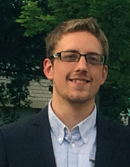
Sebastian Buschjäger
Sebastian Buschjäger is a PhD candidate at the artificial intelligence group of the TU Dortmund University, Germany. His main research is about resource efficient machine learning algorithms and specialized hardware for machine learning. He focuses on ensemble methods, neural networks, randomized algorithms combined with specialized hardware such as FPGAs. Sebastian studied Computer Science and electrical Engineering at TU Dortmund where he received his B.Sc. in 2014 and Master in 2016.
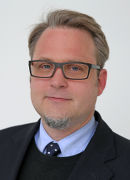
Kristian Kersting
Kristian Kersting is an Associate Professor in the Computer Science Department at the Technical University of Dortmund, Germany. He received his Ph.D. from the University of Freiburg, Germany, in 2006 and moved to the Fraunhofer IAIS and the University of Bonn using a Fraunhofer ATTRACT Fellowship in 2008 after a PostDoc at MIT, USA. Before moving to the TU Dortmund University in 2013, he was appointed Assistant Professor for Spatio-Temporal Patterns in Agriculture at the University of Bonn in 2012. Additionally, he was Adjunct Assistant Professor at the Medical School of the Wake Forest University, USA, in 2012.
He was also a ERCIM Cor Baayen Award 2009 finalist, gave several tutorials at top conferences, and co-chaired SymInfOpt, BeyondLabeler, BUDA, CMPL, CoLISD, MLG, and SRL as well as the AAAI Student Abstract track and the Starting AI Research Symposium (STAIRS). Together with Stuart Russell (Berkeley), Leslie Kaelbling (MIT), Alon Halevy (Goolge), Sriraam Natarajan (Indiana) and Lilyana Mihalkova (Google) he cofounded the international workshop series on Statistical Relational AI.
He is a coauthor of a textbook on statistical relational AI, received the ECCAI Dissertation Award in 2006, co-chaired ECML PKDD 2013 and the KDD-2015 Best Paper Award committee, and will co-chair UAI 2017.
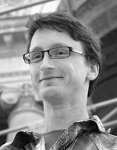
Thomas Liebig
Dr. Thomas Liebig is a post-doctoral researcher at the artificial intelligence group at TU Dortmund. He works on probabilistic modeling of spatio-temporal data, on multi-modal trip calculations and on privacy for distributed location aware applications. He obtained his PhD from the university of Bonn in 2013, where he studied probabilistic pedestrian modeling from incomplete data. He has published papers in International Conferences and Scientific Journals related to his area of expertise (ECML/PKDD, IEEE Big Data, IEEE IE, AGILE, JAOR, ..). He evaluates articles for numerous journals and conferences (amongst them IEEE ICDE, VAST, KDD, IJGI, KAIS), co-organized the workshop on Mining Urban Data in conjunction with ICML'15, and the International Workshops on Computational Transportation Sciences (IWCTS).

Wayne Luk
Wayne Luk is Professor of Computer Engineering at Imperial College London, where he leads the Custom Computing Research Group and the EPSRC Centre for Doctoral Training in High Performance Embedded and Distributed Systems. He was Visiting Professor at Stanford University. He has received awards from various conferences such as ASAP, FCCM, FPL, FPT and SAMOS, as well as a Research Excellence Award from Imperial College. He is a Fellow of the Royal Academy of Engineering, the IEEE and the BCS.
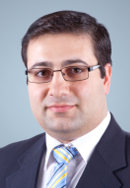
Mojtaba Masoudinejad
Mojtaba Masoudinejad received the B.Sc. degree in control engineering from K.N. Toosi University of Technology, Tehran, Iran, in 2007 and the M.Sc. degree in automation and robotics from TU Dortmund University, Dortmund, Germany, in 2011, where he is currently working toward the Ph.D. degree in the Chair of Materials Handling and Warehousing. Since 2013, he has been a Research Assistant with TU Dortmund University. His research mainly focuses on the energy harvesting and management of ultra-low-power energy-aware cyber-physical systems in the field of materials handling and warehousing in cooperation with the Fraunhofer Institute for Material Flow and Logistics, Dortmund.
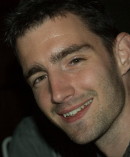
Rob Maunder
Dr. Robert G. Maunder has studied with the School of Electronics and Computer Science, University of Southampton, UK, since October 2000. He was awarded a first class honours BEng in Electronic Engineering in July 2003, as well as a PhD in Telecommunications in December 2007. He began a lectureship in November 2007 and was promoted to Associate Professor in March 2013. He was awarded Senior Member status of the IEEE in December 2012, Chartered Engineer status of the IET in November 2013 and Fellow status of the IET in January 2017. Rob's research interests include joint source/channel coding and the holistic design of algorithms and hardware implementations for wireless communications. He has published over 100 IEEE papers in these areas. He is the founder and CTO of AccelerComm Ltd, which is commercialising his research as soft-IP.
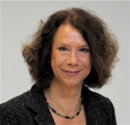
Katharina Morik
Katharina Morik is full professor for computer science at the TU Dortmund University, Germany. She earned her Ph.D. (1981) at the University of Hamburg and her habilitation (1988) at the TU Berlin. Starting with natural language processing, her interest moved to machine learning ranging from inductive logic programming to statistical learning, then to the analysis of very large data collections, high-dimensional data, and resource awareness. She is a member of the National Academy of Science and Engineering and the North-Rhine-Westphalia Academy of Science and Art. She is the author of more than 200 papers in well acknowledged conferences and journals. Her latest results include spatio-temporal random fields and integer Markov random fields, both allowing for complex graphical models under resource constraints.
Her aim to share scientific results strongly supports open source developments. For instance, the first efficient implementation of the support vector machine, SVM_light,, was developed at her lab by Thorsten Joachims. Also the leading data mining platform RapidMiner started out at her lab, which continues to contribute to it. Currently, the Java streams framework is developed, which abstracts processes on distributed data streams. Since 2011, she is leading the collaborative research center SFB876 on resource-aware data analysis, an interdisciplinary center comprising 14 projects, 20 professors, and about 50 Ph D students or Postdocs. She was one of those starting the IEEE International Conference on Data Mining together with Xindong Wu, and was chairing the program of this conference in 2004. She was the program chair of the European Conference on Machine Learning (ECML) in 1989 and one of the program chairs of ECML PKDD 2008. She is in the editorial boards of the international journals “Knowledge and Information Systems” and “Data Mining and Knowledge Discovery”.
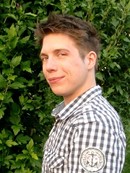
Nico Piatkowski
Nico Piatkowski is a PhD candidate at the artificial intelligence group of the TU Dortmund, Germany. He works at the project A1 (Data Mining for Ubiquitous System Software) of the Collaborative Research Center SFB 876 - Providing Information by Resource-Constrained Data Analysis. His main research is about resource efficient machine learning algorithms with a strong focus on probabilistic graphical models, regularization, approximation theory, parallel algorithms and complexity in statistical modeling. Nico studied at TU Dortmund where he received a diploma in computer science in 2011 and a B.Sc. in economics in 2013.

Chris Schwiegelshohn
Chris Schwiegelshohn is a researcher at La Sapienza University in Rome. Before that, he was a Ph.D. student in Dortmund with a thesis on "Algorithms for Large-Scale Graph and Clustering Problems". His research interests cover graph streaming, learning algorithms for large data sets, and online and approximation algorithms.
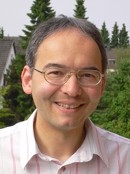
Olaf Spinczyk
Olaf Spinczyk is professor of Computer Science at Technische Universität Dortmund, Germany, where he is leading the Embedded System Software Group. Before moving to Dortmund, Olaf worked as a post doc at the University of Erlangen-Nuremberg, Germany. He received his PhD from the University of Magdeburg, Germany, in 2002 for his research on "Operating System Construction by Aspect-Orientation".
Olaf published more than 100 conference, workshop, and journal papers, which have contributed to software and language engineering as well as system software research, especially targeting resource-constrained embedded systems. In the context of the collaborative research center SFB 876 he is leading two projects: "UbiDM" aims at opening the internal state of embedded system software for large scale distributed data mining and learning-based optimizations. In the "Platform" project he is working on system-software resource models.